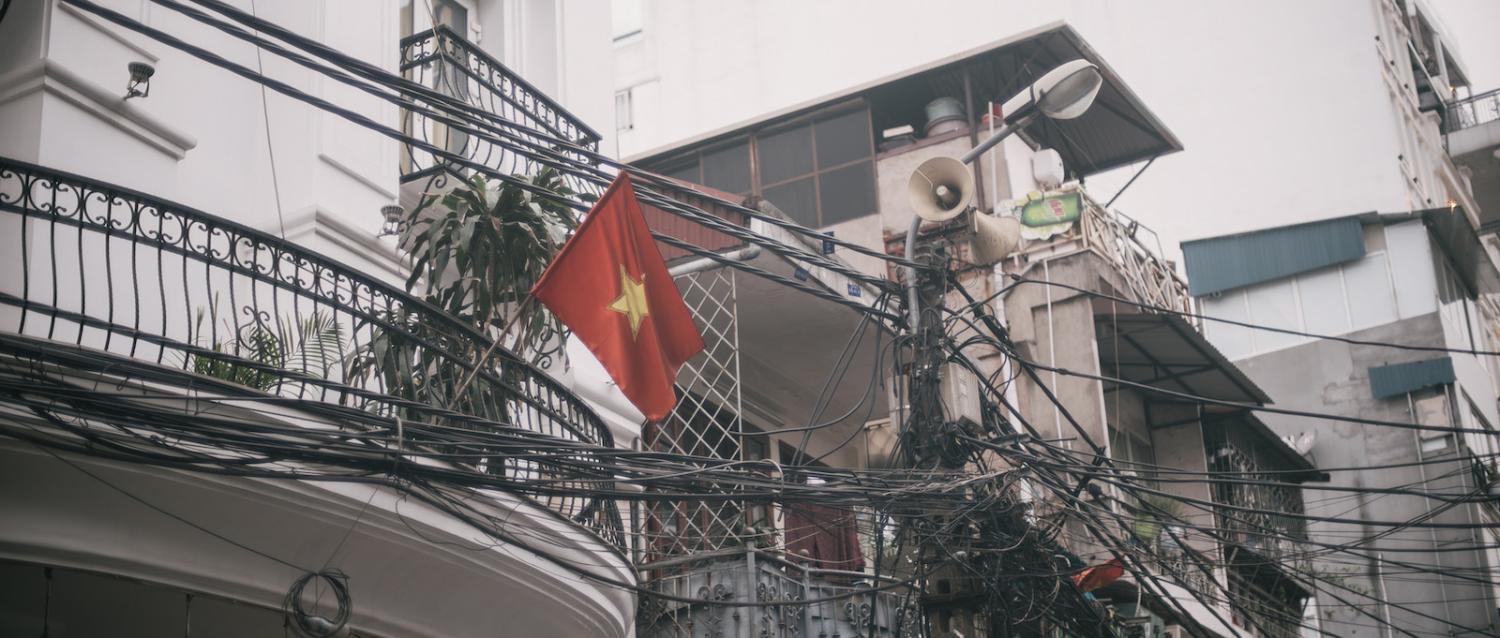During US Secretary of Defense James Mattis’ two-day visit to Vietnam last week, the Communist Party of Vietnam (CPV) quietly released the high-profile dissident blogger known as ‘Mẹ Nấm,’ or Mother Mushroom, on the condition of her exile to the United States. While Mattis’ trip and the CPV’s decision to release Mother Mushroom each indicate deepening US-Vietnam ties in different ways, the episode reveals more about Hanoi’s insecurities than any political awakening or relaxation of its repressive security apparatus.
The timing of her release during Mattis’ visit was likely meant both to reduce media attention on the story while signalling to the US that Hanoi was willing to show flexibility to Washington’s human rights concerns.
Mother Mushroom was arrested on charges of spreading propaganda against the state under Article 88 of Vietnam’s Penal Code and gained prominence for criticising the government’s mismanagement of the Formosa steel plant toxic spill in Ha Tinh province on her blog in 2016. She had previously written disparagingly of the government, but found herself in the spotlight of the CPV’s dragnet when the Formosa controversy attracted weeks of protests and public outrage.
At first, fish began washing up dead along the coastline of Ha Tinh in central Vietnam. Then hundreds of people became sick, having eaten fish contaminated by the wastewater from the steel plant. Local citizens complained and called attention to the plant’s suspected role in the poisoning. When a representative from the Taiwanese company that owned the plant acknowledged that certain chemical compounds in the factory’s wastewater could be responsible, the government rushed to offer counter-narratives. Government ministers then refused to release officials findings due to the ongoing investigation, further angering exasperated citizens. In late June, after nearly two months of protests across multiple Vietnamese cities, the government announced that Formosa Plastics, of which the steel plant was a subsidiary, had agreed to pay a US $500 million fine.
Widening news coverage of the spill – and revelations that the government had ignored and then covered up the story rather than acknowledge the public health emergency – likely led the Politburo to feel compelled to make an example of one of its most prominent critics, thereby sending a signal that it would not tolerate open condemnation. Authorities arrested Nguyen Ngoc Nhu Quynh, more commonly known as Mother Mushroom, in October 2016. Quynh was the leader of the Network of Vietnamese Bloggers, an independent writers union. Her arrest had a chilling effect on the wider community of dissident bloggers in the country.
However, rather than achieving social stability by silencing its critics with the long arm of the law, arresting dissidents often puts them in the spotlight and grants them international prestige when news and social media spread word of their detention and often harsh treatment.
In a video conference interview with Reuters, Quynh recounted her three hunger strikes in prison, the longest lasting 16 days. She also relayed how authorities separated her from other prisoners, so that she couldn’t communicate with them or spread her subversive thinking.
The US State Department had lobbied for Quynh’s release and eventually secured the conditions for her to fly to the United States along with her two children and 63-year old mother. The timing of her release during Mattis’ visit was likely meant both to reduce media attention on the story while signalling to the US that Hanoi was willing to show flexibility to Washington’s human rights concerns in order to keep the partnership on positive footing.
In recent years, the United States has lifted a ban on lethal weapons sales to Vietnam and delivered a Hamilton-class cutter to the Vietnamese Coast Guard in order to boost maritime capacity.

Nevertheless, Quynh’s release may open more questions about Vietnam’s human rights and governance standards than it resolves. Though Hanoi released Mother Mushroom, it has detained numerous other activists, bloggers, and lawyers. According to Amnesty International, the Vietnamese government is currently holding 97 political prisoners. Last Thursday, another activist who participated in demonstrations surrounding the Formosa plant’s spill, Le Dinh Luong, lost his appeal to overturn a 20-year sentence for “carrying out activities that aim to overthrow the people’s administration.”
Under General Secretary Nguyen Phu Trong, who has overseen an escalating purge of political rivals under the guise of a Xi Jinping-esque anti-corruption campaign, Vietnam is clinging to its intolerance for political dissent. Such a predilection for repression hardly guarantees a tranquil populace. By focusing on such a whack-a-mole strategy to suppress citizen dissent, the Communist Party risks creating a wider backlash and fuelling more unrest than it can control. Such a negative cycle threatens to undermine social harmony and distract the leadership from effectively administering to a society on the move and from distributing the fruits of strong economic growth in order to lay the conditions for continued growth and global competitiveness.
As I have argued previously, the CPV would do well to consider delivering on basic services and governance issues (such as reducing petty corruption, alleviating pollution, and providing clean water) if it wants to lessen public pressures and enhance its popular support. In the meantime, Mother Mushroom’s new home in Houston allows her to write freely about her home country.

